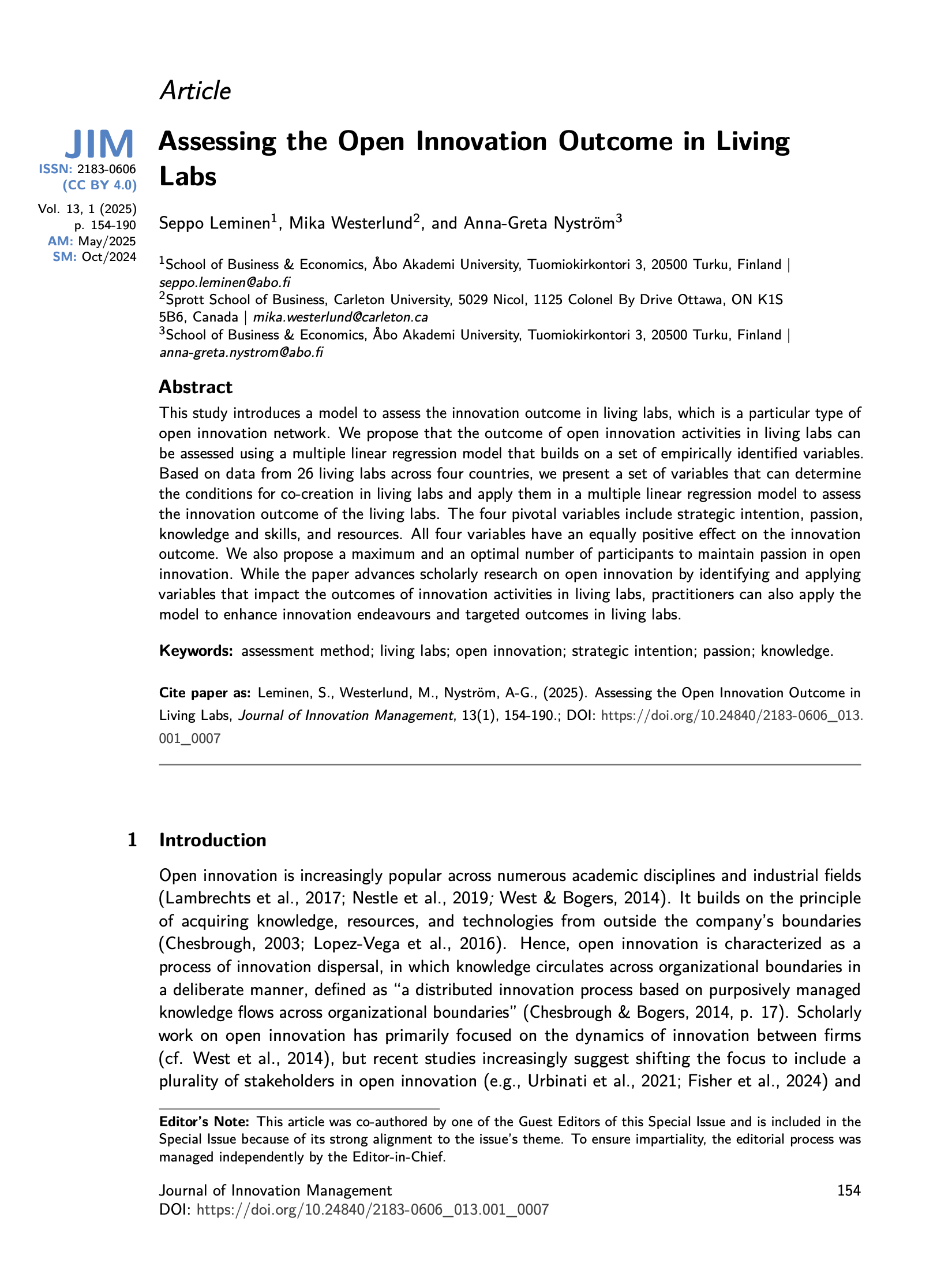Assessing the Open Innovation Outcome in Living Labs
Main Article Content
Abstract
This study introduces a model to assess the innovation outcome in living labs, which is a particular type of open innovation network. We propose that the outcome of open innovation activities in living labs can be assessed using a multiple linear regression model that builds on a set of empirically identified variables. Based on data from 26 living labs across four countries, we present a set of variables that can determine the conditions for co-creation in living labs and apply them in a multiple linear regression model to assess the innovation outcome of the living labs. The four pivotal variables include strategic intention, passion, knowledge and skills, and resources. All four variables have an equally positive effect on the innovation outcome. We also propose a maximum and an optimal number of participants to maintain passion in open innovation. While the paper advances scholarly research on open innovation by identifying and applying variables that impact the outcomes of innovation activities in living labs, practitioners can also apply the model to enhance innovation endeavours and targeted outcomes in living labs.
Article Details
Authors who publish with this journal agree to the following terms:
- Authors retain copyright and grant the journal right of first publication with the work simultaneously licensed under a Creative Commons Attribution License that allows others to share the work with an acknowledgement of the work's authorship and initial publication in this journal.
- Authors are able to enter into separate, additional contractual arrangements for the non-exclusive distribution of the journal's published version of the work (e.g., post it to an institutional repository or publish it in a book), with an acknowledgement of its initial publication in this journal.
- Authors are permitted and encouraged to post their work online (e.g., in institutional repositories or on their website) prior to and during the submission process, as it can lead to productive exchanges, as well as earlier and greater citation of published work (See The Effect of Open Access).

